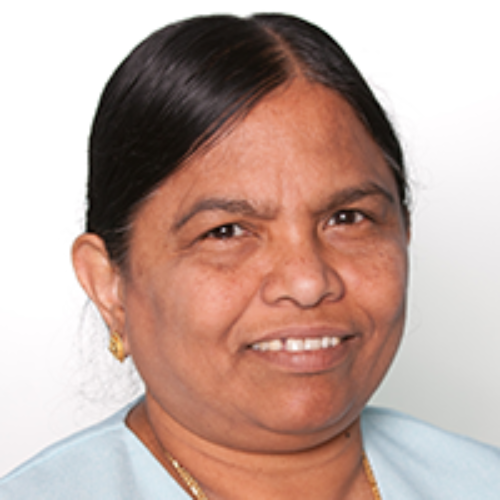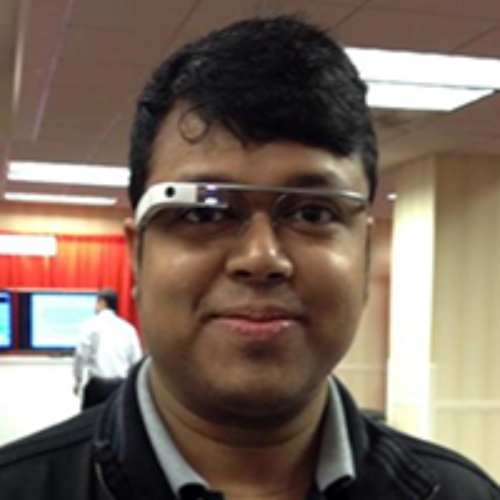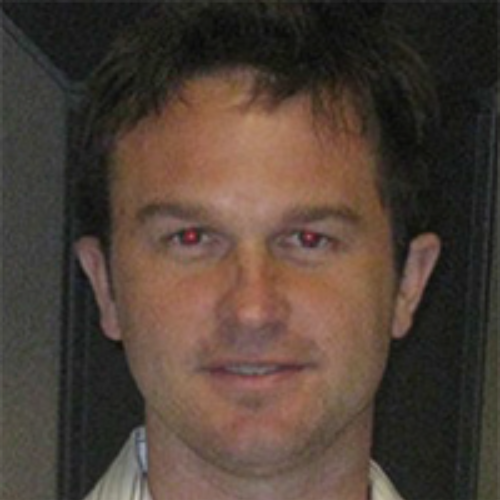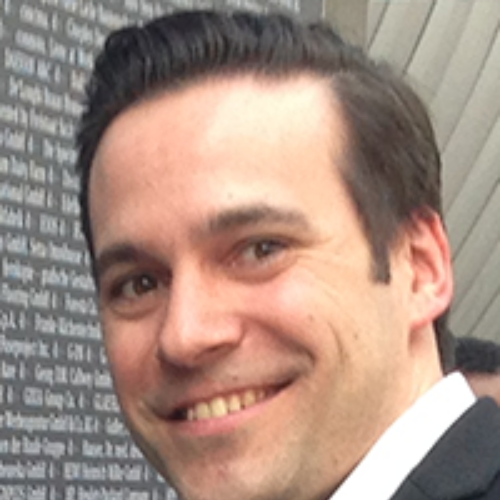2015 Scholars
Advancing the Next Generation
Meet Our
2015 Scholars

Ponrathi Athilingam | PhD, ACNP
Assistant Professor | University Of South Florida
Research Interest: Design of a mobile app and technology-based interventions to improve heart failure outcomes
Research Summary: As a Nationally certified acute care nurse practitioner, I care for patients with heart failure who have a high readmission rate. The overarching goal of my research focus is to improve heart failure patients’ self-care practices, medication adherence to therapy, and knowledge, thereby reduce hospital readmission rates. I have collaborated with a professor from department of computer science and engineering and designed a mobile app called HeartMapp. The HeartMapp provides daily tailored alerts to patients in their own mobile phones to weigh themselves, check blood pressure, complete a short questionnaire on heart failure symptoms; include interactive education; as well as provide feedback to patients on actions to be taken for heart failure symptoms. The real time data from Bluetooth transmits data from patients on heart rate and heart rate variability. Built in biofeedback exercises including deep breathing exercise and assessment of six-minute walk test are aimed to improve heart rate variability thereby improve heart failure outcomes. HeartMapp not only offers feedback to patients on their symptoms, but the data may be utilized by providers to offer early intervention for physiological derailment to reduce readmissions.
Research Summary: As a Nationally certified acute care nurse practitioner, I care for patients with heart failure who have a high readmission rate. The overarching goal of my research focus is to improve heart failure patients’ self-care practices, medication adherence to therapy, and knowledge, thereby reduce hospital readmission rates. I have collaborated with a professor from department of computer science and engineering and designed a mobile app called HeartMapp. The HeartMapp provides daily tailored alerts to patients in their own mobile phones to weigh themselves, check blood pressure, complete a short questionnaire on heart failure symptoms; include interactive education; as well as provide feedback to patients on actions to be taken for heart failure symptoms. The real time data from Bluetooth transmits data from patients on heart rate and heart rate variability. Built in biofeedback exercises including deep breathing exercise and assessment of six-minute walk test are aimed to improve heart rate variability thereby improve heart failure outcomes. HeartMapp not only offers feedback to patients on their symptoms, but the data may be utilized by providers to offer early intervention for physiological derailment to reduce readmissions.

Audrey Boruvka | PhD
Postdoctoral Research Fellow | University of Michigan
Research Interest: Statistical methods for censored and longitudinal data
Research Summary: In mHealth, assessment and treatment often takes place at numerous, momentary occasions within the user's natural environment. Over time these ecological momentary assessments and interventions (EMAs and EMIs) generate a great deal of information on individual characteristics, contextual factors, treatment received, and response to treatment. My postdoctoral research has focused on statistical methods for assessing both the effect of EMIs and moderation of effects---all of which may vary with time in some way. At the mHTI, I hope to examine how these methods meet the needs of scientists designing mHealth interventions and to gain feedback for guiding future work in this area.
Research Summary: In mHealth, assessment and treatment often takes place at numerous, momentary occasions within the user's natural environment. Over time these ecological momentary assessments and interventions (EMAs and EMIs) generate a great deal of information on individual characteristics, contextual factors, treatment received, and response to treatment. My postdoctoral research has focused on statistical methods for assessing both the effect of EMIs and moderation of effects---all of which may vary with time in some way. At the mHTI, I hope to examine how these methods meet the needs of scientists designing mHealth interventions and to gain feedback for guiding future work in this area.

Debraj De | PhD
Postdoctoral Fellow | Missouri U. of Science & Technology
Research Interest: Smart Healthcare, Smart Environments, Wearable Sensing, Machine Learning, Sensor Networks, Pervasive Computing
Research Summary: My primary research focus is in multi-modal wearable and infrastructure sensing (including distributed networked sensing), and sensor data analytics for Smart Healthcare and Well-being. This is primarily focused on behavior tracking of elderly people for signs of dementia progression. My works are building research and development solutions for elderly people health assessment in both forms of in-home and in-clinic evaluations. The in-home solution is focused on detecting very fine grained ADL (Activities of Daily Living)/ IADL (Instrumental Activities of Daily Living) recognition, and then building behavior profiles for detection of abnormalities and changes through time. In addition this includes ongoing efforts on indoor localization for understanding more context about the activity and behaviors.
Research Summary: My primary research focus is in multi-modal wearable and infrastructure sensing (including distributed networked sensing), and sensor data analytics for Smart Healthcare and Well-being. This is primarily focused on behavior tracking of elderly people for signs of dementia progression. My works are building research and development solutions for elderly people health assessment in both forms of in-home and in-clinic evaluations. The in-home solution is focused on detecting very fine grained ADL (Activities of Daily Living)/ IADL (Instrumental Activities of Daily Living) recognition, and then building behavior profiles for detection of abnormalities and changes through time. In addition this includes ongoing efforts on indoor localization for understanding more context about the activity and behaviors.

Quyen Epstein-Ngo | PhD
Research Assistant Professor | University of Michigan
Research Interest: Substance abuse; violence; contemplative practice and compassion; health disparities and technology use/technology-enhanced interventions among high-risk, difficult to reach populations
Research Summary: Dr. Epstein-Ngo’s current research focuses on the development of technology-enhanced interventions for high-risk, difficult to reach adolescents and emerging adults with co-occurring substance use and violence perpetration. Dr. Epstein-Ngo develops interventions that employ user-centered technology platforms to deliver interventions and enhance interpersonal connections and access to care. Her research emphasizes the importance of empirical support for both the content of interventions as well as the use of technology in interventions. Dr. Epstein-Ngo’s work endeavors to better understand and address the complex ways in which individuals interact with and function in their environments.
Research Summary: Dr. Epstein-Ngo’s current research focuses on the development of technology-enhanced interventions for high-risk, difficult to reach adolescents and emerging adults with co-occurring substance use and violence perpetration. Dr. Epstein-Ngo develops interventions that employ user-centered technology platforms to deliver interventions and enhance interpersonal connections and access to care. Her research emphasizes the importance of empirical support for both the content of interventions as well as the use of technology in interventions. Dr. Epstein-Ngo’s work endeavors to better understand and address the complex ways in which individuals interact with and function in their environments.

Jiaqi Gong | PhD
Research Scientist | University of Virginia
Research Interest: Body Sensor Networks for Bio-medical Applications, Healthcare Informatics
Research Summary: My research goal is to facilitate scientific exploration by creating advanced model, framework and infrastructure with modern statistics and probability to fill the gap between computer engineers and other domain experts through leveraging knowledge from experts into data and translating data into knowledge, and then to deliver beneficial and constructive instruments for people in need. My current research interests therefore include body sensor networks for biomedical and healthcare applications, ambient and wearable embedded systems, biomedical signal processing and pattern recognition, and wireless sensor networks for environmental health.
Research Summary: My research goal is to facilitate scientific exploration by creating advanced model, framework and infrastructure with modern statistics and probability to fill the gap between computer engineers and other domain experts through leveraging knowledge from experts into data and translating data into knowledge, and then to deliver beneficial and constructive instruments for people in need. My current research interests therefore include body sensor networks for biomedical and healthcare applications, ambient and wearable embedded systems, biomedical signal processing and pattern recognition, and wireless sensor networks for environmental health.

Ming Ji | PhD
Professor | University of South Florida
Research Interest: Biostatistics, health behaviors, streaming data.
Research Summary: My main research is to apply statistical methods to health and medical research to improve population health. My research areas include longitudinal data, missing data, streaming data, health behaviors and big data. I am currently working on developing smartphone based health monitoring and intervention systems to improve physical activity level of large number of people in free living conditions.
Research Summary: My main research is to apply statistical methods to health and medical research to improve population health. My research areas include longitudinal data, missing data, streaming data, health behaviors and big data. I am currently working on developing smartphone based health monitoring and intervention systems to improve physical activity level of large number of people in free living conditions.

Andrew D. Miller | PhD
Postdoctoral Fellow | University of Washington
Research Interest: Social and Peer Health
Research Summary: Andrew D Miller, Ph.D., is a National Library of Medicine Postdoctoral Fellow in the University of Washington’s Biomedical and Health Informatics Division. He studies how social computing technology can empower people to help each other with their everyday health and wellness. In his research, Dr. Miller designs pervasive technologies to encourage and enable new forms of social support online and offline, and works with participants to shape both the technical systems and in-the-wild deployments. He earned his PhD in Human-Centered Computing from Georgia Tech, where he showed how noncompetitive social awareness systems can help adolescents lead more active lives. He has co-written successful grants from the NSF and Seattle Children’s Hospital, and his work on participatory design with adolescents for mHealth earned him a Best Paper award at Pervasive Health 2013. At the University of Washington, Dr. Miller studies how mobile and ubiquitous communications technologies can better support patients and caregivers, both in the inpatient setting and outside the hospital.
Research Summary: Andrew D Miller, Ph.D., is a National Library of Medicine Postdoctoral Fellow in the University of Washington’s Biomedical and Health Informatics Division. He studies how social computing technology can empower people to help each other with their everyday health and wellness. In his research, Dr. Miller designs pervasive technologies to encourage and enable new forms of social support online and offline, and works with participants to shape both the technical systems and in-the-wild deployments. He earned his PhD in Human-Centered Computing from Georgia Tech, where he showed how noncompetitive social awareness systems can help adolescents lead more active lives. He has co-written successful grants from the NSF and Seattle Children’s Hospital, and his work on participatory design with adolescents for mHealth earned him a Best Paper award at Pervasive Health 2013. At the University of Washington, Dr. Miller studies how mobile and ubiquitous communications technologies can better support patients and caregivers, both in the inpatient setting and outside the hospital.

Dana B. Mukamel | PhD, MS
Professor | University of California, Irvine
Research Interest: Quality of care, measurement of quality,, use of mobile technologies by patients, providers and policy makers in decision making
Research Summary: My research focuses on quality of care and understanding the factors that contribute to it. I study incentives and response to incentives by patients, providers and policy makers. I investigate the effect of market structures, information, report cards, and government regulations on quality of care. My research relies on statistical and economic methods of big data analyses, working with clinical and claims data sets such as Medicare and Medicaid claims. In recent years I have become interested in using mobile technology and IT to develop sophisticated decision aids for patients and providers, incorporating methods for preference elicitations with data obtained in clinical studies or big claims data sets. With AHRQ and PCORI funding I have recently developed applications to helps patients choose the best nursing home for them and women with advanced ovarian cancer to choose between two chemotherapy options. My research is designed to identify opportunities and develop apps and tools that improve the decision making process for patients, their providers, and policy makers.
Research Summary: My research focuses on quality of care and understanding the factors that contribute to it. I study incentives and response to incentives by patients, providers and policy makers. I investigate the effect of market structures, information, report cards, and government regulations on quality of care. My research relies on statistical and economic methods of big data analyses, working with clinical and claims data sets such as Medicare and Medicaid claims. In recent years I have become interested in using mobile technology and IT to develop sophisticated decision aids for patients and providers, incorporating methods for preference elicitations with data obtained in clinical studies or big claims data sets. With AHRQ and PCORI funding I have recently developed applications to helps patients choose the best nursing home for them and women with advanced ovarian cancer to choose between two chemotherapy options. My research is designed to identify opportunities and develop apps and tools that improve the decision making process for patients, their providers, and policy makers.

Jagan A Pillai | PhD, MBBS
Assistant Professor | Lou Ruvo Center for Brain Health
Research Interest: Alzheimer’s disease and Cognitive neurology
Research Summary: Alzheimer’s disease (AD), affecting more than 35.6 million people worldwide, is characterized by a progressive decline in cognitive function. AD pathological process is recognized to start years before onset of clinical symptoms. Therapeutic interventions in the early stages of AD before significant neuronal damage has occurred are likely to achieve success. My research focus: 1) Identifying biological factors at the early stage of AD that determine rate of progression to help initiate new therapies and 2) Develop methodologies to help in the detection and tracking of early subtle changes in cognition and function at the initial stage of AD to help initiate early novel interventions.
Research Summary: Alzheimer’s disease (AD), affecting more than 35.6 million people worldwide, is characterized by a progressive decline in cognitive function. AD pathological process is recognized to start years before onset of clinical symptoms. Therapeutic interventions in the early stages of AD before significant neuronal damage has occurred are likely to achieve success. My research focus: 1) Identifying biological factors at the early stage of AD that determine rate of progression to help initiate new therapies and 2) Develop methodologies to help in the detection and tracking of early subtle changes in cognition and function at the initial stage of AD to help initiate early novel interventions.

Kathleen (Katie) Reilly | PhD, MPH
PI | NYC National HIV Behavioral Surveillance System
Research Interest: Infectious Diseases
Research Summary: The majority of my research has focused on behavioral aspects of HIV, however, I have also collaborated with researchers both domestically and internationally on studies concerning a variety of other health topics including hypertension, obesity, genetics, infectious disease outbreaks, and sexually transmitted diseases.
Research Summary: The majority of my research has focused on behavioral aspects of HIV, however, I have also collaborated with researchers both domestically and internationally on studies concerning a variety of other health topics including hypertension, obesity, genetics, infectious disease outbreaks, and sexually transmitted diseases.

Hillol Sarker| PhD Student
Graduate Research Assistant | University of Memphis
Research Interest: Mobile Health, Data Mining, Ubiquitous Computing
Research Summary: My work aims to identify the optimal timing to proactively trigger just-in-time stress interventions with the help of wearable on-body sensors (e.g., respiration, ECG, and accelerometer) and mobile sensors (e.g., GPS). I define the timing of intervention as having two components. First, from the stress time-series, identify the precise timing for just-in-time stress interventions and develop a machine learning model to predict extreme stress before its occurrence. Second, I detected whether a person is available for engaging in a task-like intervention which requires significant user involvement. I believe, such prediction and prevention could improve health and quality of life for the entire society, given the ubiquity of stress in human society and its wide-ranging adverse impact on physical, psychological, behavioral, and social health. My research also focuses on the detection of smoking episodes from wrist sensors and identifying the predictors of smoking relapse.
Research Summary: My work aims to identify the optimal timing to proactively trigger just-in-time stress interventions with the help of wearable on-body sensors (e.g., respiration, ECG, and accelerometer) and mobile sensors (e.g., GPS). I define the timing of intervention as having two components. First, from the stress time-series, identify the precise timing for just-in-time stress interventions and develop a machine learning model to predict extreme stress before its occurrence. Second, I detected whether a person is available for engaging in a task-like intervention which requires significant user involvement. I believe, such prediction and prevention could improve health and quality of life for the entire society, given the ubiquity of stress in human society and its wide-ranging adverse impact on physical, psychological, behavioral, and social health. My research also focuses on the detection of smoking episodes from wrist sensors and identifying the predictors of smoking relapse.

Mengjun Xie | PhD
Assistant Professor | University of Arkansas at Little Rock
Research Interest: Cyber Security, Mobile HealthCare, Networking
Research Summary: Mengjun Xie’s research has been focusing on network systems and security, mobile computing and security. His Ph.D. dissertation is on building secure message systems. His current research focuses on behavioral biometric authentication, user identity management, mHealth applications, and cyber security education. He has a long and productive collaboration relationship with biomedical researchers and has been involved in various joint bioinformatics projects such as social network analysis for biomedical research networks, brain network analysis, and mobile identity management for health information systems.
Research Summary: Mengjun Xie’s research has been focusing on network systems and security, mobile computing and security. His Ph.D. dissertation is on building secure message systems. His current research focuses on behavioral biometric authentication, user identity management, mHealth applications, and cyber security education. He has a long and productive collaboration relationship with biomedical researchers and has been involved in various joint bioinformatics projects such as social network analysis for biomedical research networks, brain network analysis, and mobile identity management for health information systems.

Susan Vorkoper | MPH, MSW
Global Health Research & Policy Analyst | NIH
Research Interest: Implementation Science; NCDs & HIV
Research Summary: The focus of my work is on fostering international scientific dialogue and collaboration in global health research to discuss critical research priorities, opportunities and synergies around specific health challenges, especially in the field of implementation science. As part of the Fogarty International Center at NIH, I’m interested in developing opportunities to improve mHealth research suited for low- and middle-income countries and to promote multidisciplinary research, implementation science, and novel research methodologies that helps build the evidence base for impactful technologies.
Research Summary: The focus of my work is on fostering international scientific dialogue and collaboration in global health research to discuss critical research priorities, opportunities and synergies around specific health challenges, especially in the field of implementation science. As part of the Fogarty International Center at NIH, I’m interested in developing opportunities to improve mHealth research suited for low- and middle-income countries and to promote multidisciplinary research, implementation science, and novel research methodologies that helps build the evidence base for impactful technologies.

Alicia Bargar | PhD Student
Graduate Research Assistant | Georgia Institute of Technology
Research Interest: Computer Vision
Research Summary: My research focuses on studying how a person’s environment can affect their behavior. This is done by recording from a wearable camera to get the person’s perspective, then utilizing the footage to understand what stimuli they’re observing and their response to it. Currently we are developing a way to quantify the amount of media one is exposed to by automatically detecting the act of watching television. By automating this process, we hope to remove the labor required in detecting these events manually. This will allow studies analyzing media’s effect to be performed more efficiently, allowing psychologists to run longer studies and focus in on the relevant events. By attending the mHTI, I hope to learn how to work with scientists from different disciplines to produce better quality research that furthers both fields.
Research Summary: My research focuses on studying how a person’s environment can affect their behavior. This is done by recording from a wearable camera to get the person’s perspective, then utilizing the footage to understand what stimuli they’re observing and their response to it. Currently we are developing a way to quantify the amount of media one is exposed to by automatically detecting the act of watching television. By automating this process, we hope to remove the labor required in detecting these events manually. This will allow studies analyzing media’s effect to be performed more efficiently, allowing psychologists to run longer studies and focus in on the relevant events. By attending the mHTI, I hope to learn how to work with scientists from different disciplines to produce better quality research that furthers both fields.

Eun Kyoung Choe | PhD
Assistant Professor | Pennsylvania State University
Research Interest: Human-Computer Interaction; Health Informatics; Ubiquitous Computing; Design
Research Summary: My research focuses on designing, developing, and evaluating technology to promote healthy behaviors. In particular, I explore ways to support the process of collecting, exploring, and sharing self-monitoring data. To support self-monitoring data collection, I design ways to lower the data capture burden while promoting awareness when collecting self-monitoring data via manual capture and active sensing. To support people in gaining insights from their personal data, I design personal data visualization systems to help non-experts explore, reflect on, visualize, and present their personal data. To support self-monitoring data sharing between patients and doctors with a focus on enhancing patient-doctor communication, I conduct qualitative research to understand patients’ and clinicians’ barriers toward personal health data sharing.
Research Summary: My research focuses on designing, developing, and evaluating technology to promote healthy behaviors. In particular, I explore ways to support the process of collecting, exploring, and sharing self-monitoring data. To support self-monitoring data collection, I design ways to lower the data capture burden while promoting awareness when collecting self-monitoring data via manual capture and active sensing. To support people in gaining insights from their personal data, I design personal data visualization systems to help non-experts explore, reflect on, visualize, and present their personal data. To support self-monitoring data sharing between patients and doctors with a focus on enhancing patient-doctor communication, I conduct qualitative research to understand patients’ and clinicians’ barriers toward personal health data sharing.

Dan Ding | PhD
Associate Professor | University of Pittsburgh
Research Interest: mHealth and wearable applications for people with disabilities, assistive robotics
Research Summary: My research focuses on using mHealth and wearable technology to monitor and assess movement and behavior of people with disabilities (e.g., people with spinal cord injury and traumatic brain injury) in ecologically-valid settings and coach them to lead healthier lifestyle. We explore how sensor data acquired throughout everyday life and mHealth applications might be used or designed to assist clinical decisions and support user self-management, ultimately improving health and wellness of this population. We have evaluated the validity of portable activity monitors among people who rely on wheelchairs for mobility and are developing custom devices as well as algorithms to assess the quantity and quality of their upper limb movements. We are developing mHealth applications to support safe and effective use of seating and mobility devices, as well as active lifestyle among people with mobility limitations. We are also exploring the use of wearable sensors to detect moments of behavioral self-regulation dysfunction of people with traumatic brain injury with an ultimate goal to provide ecological momentary interventions.
Research Summary: My research focuses on using mHealth and wearable technology to monitor and assess movement and behavior of people with disabilities (e.g., people with spinal cord injury and traumatic brain injury) in ecologically-valid settings and coach them to lead healthier lifestyle. We explore how sensor data acquired throughout everyday life and mHealth applications might be used or designed to assist clinical decisions and support user self-management, ultimately improving health and wellness of this population. We have evaluated the validity of portable activity monitors among people who rely on wheelchairs for mobility and are developing custom devices as well as algorithms to assess the quantity and quality of their upper limb movements. We are developing mHealth applications to support safe and effective use of seating and mobility devices, as well as active lifestyle among people with mobility limitations. We are also exploring the use of wearable sensors to detect moments of behavioral self-regulation dysfunction of people with traumatic brain injury with an ultimate goal to provide ecological momentary interventions.

David Fedele | PhD
Assistant Professor | University of Florida
Research Interest: Health Behavior, Pediatric Psychology, Chronic Illness, Mobile Health
Research Summary: I am a Postdoctoral Intramural Research Training Award Fellow with the Neuroscience and Novel Therapeutics Unit in the Emotion and Development Branch at the National Institute of Mental Health. My research focuses on leveraging technology to: (1) investigate neural and behavioral mechanisms of risk for psychopathology and (2) develop, evaluate, and implement neuroscience-informed preventive interventions for internalizing and externalizing psychopathology to improve public health.
Research Summary: I am a Postdoctoral Intramural Research Training Award Fellow with the Neuroscience and Novel Therapeutics Unit in the Emotion and Development Branch at the National Institute of Mental Health. My research focuses on leveraging technology to: (1) investigate neural and behavioral mechanisms of risk for psychopathology and (2) develop, evaluate, and implement neuroscience-informed preventive interventions for internalizing and externalizing psychopathology to improve public health.

Judy Hahn | PhD, MA
Associate Professor in Residence | UCSF
Research Interest: Alcohol, HIV, sub-Saharan Uganda, under-report, screening, brief interventions, alcohol biomarkers, alcohol biosensors
Research Summary: My research program focuses on the intersection of unhealthy alcohol use and HIV, primarily in sub-Saharan Africa (SSA) where both are highly prevalent. For the past 10 years, I have been leading studies using an alcohol biomarker to examine the impact of unhealthy alcohol consumption on HIV outcomes in Uganda. Alcohol consumption impacts the HIV epidemic by affecting behaviors and biological factors that lead to HIV transmission. Among those with HIV, alcohol consumption has consistently been shown to be associated with significantly reduced antiretroviral adherence and increased liver disease and mortality. Thus, reducing alcohol use among those with HIV is a high priority and is a major goal of my research.
Research Summary: My research program focuses on the intersection of unhealthy alcohol use and HIV, primarily in sub-Saharan Africa (SSA) where both are highly prevalent. For the past 10 years, I have been leading studies using an alcohol biomarker to examine the impact of unhealthy alcohol consumption on HIV outcomes in Uganda. Alcohol consumption impacts the HIV epidemic by affecting behaviors and biological factors that lead to HIV transmission. Among those with HIV, alcohol consumption has consistently been shown to be associated with significantly reduced antiretroviral adherence and increased liver disease and mortality. Thus, reducing alcohol use among those with HIV is a high priority and is a major goal of my research.

Paul E. Kilgore | MD, MPH
Associate Professor | Wayne State University
Research Interest: Innovative technologies that improve adherence, monitoring and tracking of therapeutic interventions and vaccines with particular interest in infectious diseases, vaccine preventable diseases, antibiotic resistance.
Research Summary: Our current research program is focused on developing applications and technologies that facilitate education, access and adherence with currently recommended vaccines for children and adults in the United States and other countries. We have developed an integrated mobile system that provides unique identification of children and adults using a palm vein scanning technology with code that also authenticates the palm vein pattern as a unique ID for each individual. Our system will also allow for integration with existing health information management systems as well as a standalone mobile system that is deployable in emergency, refugee or rural area programs in low and middle income countries (LIMCs) as well as settings within urban and rural areas of economically developed countries. In our ongoing research, we are evaluating longitudinal use of our system as well as application in young age groups (i.e., infants).
Research Summary: Our current research program is focused on developing applications and technologies that facilitate education, access and adherence with currently recommended vaccines for children and adults in the United States and other countries. We have developed an integrated mobile system that provides unique identification of children and adults using a palm vein scanning technology with code that also authenticates the palm vein pattern as a unique ID for each individual. Our system will also allow for integration with existing health information management systems as well as a standalone mobile system that is deployable in emergency, refugee or rural area programs in low and middle income countries (LIMCs) as well as settings within urban and rural areas of economically developed countries. In our ongoing research, we are evaluating longitudinal use of our system as well as application in young age groups (i.e., infants).

François Modave | PhD, MS
Associate Professor | University of Florida
Research Interest: Shared and informed decision-making, mHealth-based interventions, applications to cancer prevention, to obesity prevention and to promotion of healthy lifestyles
Research Summary: The overarching theme of my research is the development of algorithms and computing solutions to problems pertaining to decision-making in clinical and public health contexts, and development of computing-based solutions to promote healthy behavioral changes and healthy lifestyles. I am particularly interested in facilitating shared decision-making, informed decision-making, and improving the general understanding of health issues among patient populations. I currently have an R21 in which we are building a mobile platform to improve patients’ understanding of colorectal cancer, from a screening perspective, and the ultimate goal of the platform is to increase colorectal cancer screening uptake, in particular among low health literacy and minority populations. More generally, I am interested in mHealth approaches for problems involved a shared decision-making process for health issues without a clear best alternative, such as management of pain, and some chronic and auto-immune diseases, in particular in a primary care setting.
Research Summary: The overarching theme of my research is the development of algorithms and computing solutions to problems pertaining to decision-making in clinical and public health contexts, and development of computing-based solutions to promote healthy behavioral changes and healthy lifestyles. I am particularly interested in facilitating shared decision-making, informed decision-making, and improving the general understanding of health issues among patient populations. I currently have an R21 in which we are building a mobile platform to improve patients’ understanding of colorectal cancer, from a screening perspective, and the ultimate goal of the platform is to increase colorectal cancer screening uptake, in particular among low health literacy and minority populations. More generally, I am interested in mHealth approaches for problems involved a shared decision-making process for health issues without a clear best alternative, such as management of pain, and some chronic and auto-immune diseases, in particular in a primary care setting.

Enrique Neblett | PhD
Associate Professor | University of North Carolina at Chapel Hill
Research Interest: Racism, Resilience, and Health; Cultural Adaptations of Evidence-Based Treatments for Racial and Ethnic Minority Youth
Research Summary: My research focuses on understanding the differential impact of individual, institutional, and cultural racism on the health and wellness of African American and other racial and ethnic minority youth. Current work adopts developmental psychopathology and risk and resilience frameworks to explore underlying protective and vulnerability mechanisms underlying the association between racism-related stress and impairment in youths’ academic, social, and mental and physical health over time. We have examined the moderating and mediating influences of racial identity, racial socialization, Africentric worldview, and physiological functioning and reactivity, and hope to strengthen the foundation for the development of culturally-informed interventions that will promote the health and well-being of racial and ethnic minority youth who experience racism.
Research Summary: My research focuses on understanding the differential impact of individual, institutional, and cultural racism on the health and wellness of African American and other racial and ethnic minority youth. Current work adopts developmental psychopathology and risk and resilience frameworks to explore underlying protective and vulnerability mechanisms underlying the association between racism-related stress and impairment in youths’ academic, social, and mental and physical health over time. We have examined the moderating and mediating influences of racial identity, racial socialization, Africentric worldview, and physiological functioning and reactivity, and hope to strengthen the foundation for the development of culturally-informed interventions that will promote the health and well-being of racial and ethnic minority youth who experience racism.

Mahbubur Rahman | PhD Student
Graduate Research Assistant | University of Memphis
Research Interest: Mobile Health, Wearable Computing, Machine Learning
Research Summary: Primary research focus is to investigate challenges and opportunities in designing just-in-time mobile health intervention using wearable sensors and smartphone. By applying Machine Learning techniques on data collected using mobile body sensors, my research is to infer user’s health behaviors, such as physical activity, conversation, smoking, and physiological stress continuously in the natural environment. I am also designing and conducting user studies to collect data from user’s natural environment using wearable sensors and smartphone. Purpose of the studies is to collect data to model user behaviors or validate those models and techniques in user’s natural environment. Another focus of my research is to extract meaningful insights from large, multivariate physiological and inertial data collected using mobile sensors. I am also leading an investigation of how user burden and privacy concerns limit the power of mobile sensors to design just-in-time health intervention, and how the users can be educated so that they become more amenable to accept, and adopt wearable technologies in daily life to improve health and wellness.
Research Summary: Primary research focus is to investigate challenges and opportunities in designing just-in-time mobile health intervention using wearable sensors and smartphone. By applying Machine Learning techniques on data collected using mobile body sensors, my research is to infer user’s health behaviors, such as physical activity, conversation, smoking, and physiological stress continuously in the natural environment. I am also designing and conducting user studies to collect data from user’s natural environment using wearable sensors and smartphone. Purpose of the studies is to collect data to model user behaviors or validate those models and techniques in user’s natural environment. Another focus of my research is to extract meaningful insights from large, multivariate physiological and inertial data collected using mobile sensors. I am also leading an investigation of how user burden and privacy concerns limit the power of mobile sensors to design just-in-time health intervention, and how the users can be educated so that they become more amenable to accept, and adopt wearable technologies in daily life to improve health and wellness.

Sara Riggs | PhD
Assistant Professor | Clemson University
Research Interest: Human factors, cognitive systems engineering
Research Summary: My research focuses on developing human-centered displays and design guidelines to support task sharing, attention management, and interruption management in data-rich environments. The goal is to incorporate cognitive systems engineering to ensure that interfaces are designed with humans in mind. I have ongoing research in the areas of: 1) cognitive processing and perceptual limitations and 2) multimodal interface design, i.e. interfaces that distribute information across different sensory channels including vision, audition, and touch. Applications of my research have included healthcare and other data-rich domains such as aviation and military operations. My current research aims to extend my expertise to develop effective mHealth technologies that will account for individual differences and how needs change over time. One current project is the redesign of an artificial pancreas interface for young children with Type 1 diabetes to provide age-appropriate features, which are currently tailored for adults.
Research Summary: My research focuses on developing human-centered displays and design guidelines to support task sharing, attention management, and interruption management in data-rich environments. The goal is to incorporate cognitive systems engineering to ensure that interfaces are designed with humans in mind. I have ongoing research in the areas of: 1) cognitive processing and perceptual limitations and 2) multimodal interface design, i.e. interfaces that distribute information across different sensory channels including vision, audition, and touch. Applications of my research have included healthcare and other data-rich domains such as aviation and military operations. My current research aims to extend my expertise to develop effective mHealth technologies that will account for individual differences and how needs change over time. One current project is the redesign of an artificial pancreas interface for young children with Type 1 diabetes to provide age-appropriate features, which are currently tailored for adults.

Johannes Thrul | PhD
Postdoctoral Scholar | University of California, San Francisco
Research Interest: Addiction research, tobacco research, mHealth, EMA
Research Summary: The focus of my work is the use of mobile technology to understand substance use behavior based on event-level data collected in real time. I am also interested in utilizing communication technology to develop, test, and deliver evidence based cognitive behavioral interventions to prevent and treat substance use disorders. Currently, I am working with Dr. Danielle Ramo on a randomized controlled trial examining the effectiveness of a Facebook smoking cessation intervention for young adults. I am also working with Dr. Pamela Ling on a study focusing on neighborhood determinants of smoking related health disparities among young adults in the San Francisco Bay Area. I am going to use this neighborhood data and supplement it with an Ecological Momentary Assessment (EMA) study to investigate how neighborhood risk factors, such as tobacco point of sale marketing, impact young adults’ tobacco use urges and behaviors. The goal is to combine EMA self-reports with objective GPS based mobility data and geographic information on neighborhoods to quantify individuals’ exposure to risk factors.
Research Summary: The focus of my work is the use of mobile technology to understand substance use behavior based on event-level data collected in real time. I am also interested in utilizing communication technology to develop, test, and deliver evidence based cognitive behavioral interventions to prevent and treat substance use disorders. Currently, I am working with Dr. Danielle Ramo on a randomized controlled trial examining the effectiveness of a Facebook smoking cessation intervention for young adults. I am also working with Dr. Pamela Ling on a study focusing on neighborhood determinants of smoking related health disparities among young adults in the San Francisco Bay Area. I am going to use this neighborhood data and supplement it with an Ecological Momentary Assessment (EMA) study to investigate how neighborhood risk factors, such as tobacco point of sale marketing, impact young adults’ tobacco use urges and behaviors. The goal is to combine EMA self-reports with objective GPS based mobility data and geographic information on neighborhoods to quantify individuals’ exposure to risk factors.

Ting Zhu | PhD
Assistant Professor | University of Maryland, Baltimore County
Research Interest: Mobile Health, Wearable Computing, Sustainable Embedded Systems, Privacy Preserving Techniques, and Security
Research Summary: My research focuses on i) utilizing remote detecting and wearable computing technologies to contribute comorbidity identification and risk assessment; ii) developing novel privacy preserving and security techniques for smart health applications. During the last decade, the number of patients with multiple (2+) chronic conditions (MCC) has increased and today, having at least two chronic conditions is more normal than an exception among the elderly. Coexistence of multiple chronic conditions leads to elevated risk of mortality, increased hospitalizations and drug use, decreased physical function and lower quality of life. The central challenge lies in augmenting the clinical guidelines with recommendations that simultaneously address multiple conditions, thus facilitating a shift from the modern disease-centric medicine to a holistic approach, which is better suited for patients with MCC. We aim to compile information recorded with Smart Phones about risks of outcomes associated with interactions among multiple (2+) chronic conditions (MCC) co-occurring in patients.
Research Summary: My research focuses on i) utilizing remote detecting and wearable computing technologies to contribute comorbidity identification and risk assessment; ii) developing novel privacy preserving and security techniques for smart health applications. During the last decade, the number of patients with multiple (2+) chronic conditions (MCC) has increased and today, having at least two chronic conditions is more normal than an exception among the elderly. Coexistence of multiple chronic conditions leads to elevated risk of mortality, increased hospitalizations and drug use, decreased physical function and lower quality of life. The central challenge lies in augmenting the clinical guidelines with recommendations that simultaneously address multiple conditions, thus facilitating a shift from the modern disease-centric medicine to a holistic approach, which is better suited for patients with MCC. We aim to compile information recorded with Smart Phones about risks of outcomes associated with interactions among multiple (2+) chronic conditions (MCC) co-occurring in patients.

Avik Basu | PhD
Lecturer & Research Area Specialist Senior | U. of Michigan
Research Interest: Environmental Psychology, Human Attention
Research Summary: I research Environmental Psychology, an emerging field of social science that examines how environments influence human health and behavior. Too often, we mistakenly attribute our behaviors to personality or genetics while ignoring the effects of the external environment. External environments hold a tremendous potential and understanding their impacts is invaluable to improving the human condition. Wisely designed environments—physical and virtual—can bring out the best in people. In particular, as the world becomes saturated with information, our ability to pay attention is essential to processing that information and functioning effectively. My research conceptualizes attention as a limited resource, examining how it fatigues and how it can be restored. The environment plays a key role in these processes, yet attention remains a difficult thing to measure outside the laboratory setting. Thus, I am working on ways to develop approaches to measure attention portably, and in real-time.
Research Summary: I research Environmental Psychology, an emerging field of social science that examines how environments influence human health and behavior. Too often, we mistakenly attribute our behaviors to personality or genetics while ignoring the effects of the external environment. External environments hold a tremendous potential and understanding their impacts is invaluable to improving the human condition. Wisely designed environments—physical and virtual—can bring out the best in people. In particular, as the world becomes saturated with information, our ability to pay attention is essential to processing that information and functioning effectively. My research conceptualizes attention as a limited resource, examining how it fatigues and how it can be restored. The environment plays a key role in these processes, yet attention remains a difficult thing to measure outside the laboratory setting. Thus, I am working on ways to develop approaches to measure attention portably, and in real-time.

James Clawson | PhD
Postdoctoral Fellow | Georgia Institute of Technology
Research Interest: Everyday Health, HCI, Wearable and Ubiquitous Computing, Healthcare Journeys
Research Summary: With a background in wearable, on-body, and mobile human computer interaction (HCI), I design, deploy, and evaluate mobile and wearable systems to address complex health challenges. I take a mixed methods human-centered approach to designing and deploying novel interactive prototypes that I evaluate both in the laboratory and in long- term “in-the-wild” studies. As a Ph.D. student, I focused on improving mobile input, exploring new wearable and on-body interaction techniques, and designing and evaluating novel ways to support collocated groups of mobile users engaged in face-to-face conversations. As a post-doctoral researcher, I conduct fieldwork in the area of mobile health by exploring the adoption, use, and abandonment of wearable health tracking technologies and by deploying mobile technologies to support breast cancer patients over the course of their cancer journey. I am also interested in community and environmental health and am leading a deployment of a neighborhood-scale air quality sensor network that will be used to educate and engage a local community in a dialog about their environmental health.
Research Summary: With a background in wearable, on-body, and mobile human computer interaction (HCI), I design, deploy, and evaluate mobile and wearable systems to address complex health challenges. I take a mixed methods human-centered approach to designing and deploying novel interactive prototypes that I evaluate both in the laboratory and in long- term “in-the-wild” studies. As a Ph.D. student, I focused on improving mobile input, exploring new wearable and on-body interaction techniques, and designing and evaluating novel ways to support collocated groups of mobile users engaged in face-to-face conversations. As a post-doctoral researcher, I conduct fieldwork in the area of mobile health by exploring the adoption, use, and abandonment of wearable health tracking technologies and by deploying mobile technologies to support breast cancer patients over the course of their cancer journey. I am also interested in community and environmental health and am leading a deployment of a neighborhood-scale air quality sensor network that will be used to educate and engage a local community in a dialog about their environmental health.

E (Sarah) Du | PhD
Assistant Professor | Florida Atlantic University
Research Interest: Microfluidics, organ-on-a-chip, biosensors, mHealth, infectious diseases, blood diseases, biomechanics and biophysics of cells and cell-cell interactions
Research Summary: The primary goal of my research is to understand the interferences between cellular biophysical and biomechanical responses, human disease, and drug treatment through the applications of multidisciplinary technologies, including microfluidics, organ-on-a-chips, and biosensing. The ultimate aim is to alleviate human disease and promote healthcare delivery. My main research focus is to develop (i) innovative assays for quantitative measurements of mechanical and biophysical properties of single cells under influences of disease and drug interventions, and (ii) organ-on-a-chip sensing platforms as in vitro disease models for better understanding the molecular/cellular mechanisms of vascular occlusion and dysfunction in human diseases (e.g. sickle cell disease, malaria) as well as for evaluating new therapeutics. We will employ the findings revealed by these studies to create smart and connected clinical diagnostic systems to tackle specific problems in human health and disease, e.g. monitoring abnormal blood activities in sickle cell patients, developing patient-specific models, and providing timely diagnosis and early intervention in collaboration with biochemists, computer scientists, and clinical researchers.
Research Summary: The primary goal of my research is to understand the interferences between cellular biophysical and biomechanical responses, human disease, and drug treatment through the applications of multidisciplinary technologies, including microfluidics, organ-on-a-chips, and biosensing. The ultimate aim is to alleviate human disease and promote healthcare delivery. My main research focus is to develop (i) innovative assays for quantitative measurements of mechanical and biophysical properties of single cells under influences of disease and drug interventions, and (ii) organ-on-a-chip sensing platforms as in vitro disease models for better understanding the molecular/cellular mechanisms of vascular occlusion and dysfunction in human diseases (e.g. sickle cell disease, malaria) as well as for evaluating new therapeutics. We will employ the findings revealed by these studies to create smart and connected clinical diagnostic systems to tackle specific problems in human health and disease, e.g. monitoring abnormal blood activities in sickle cell patients, developing patient-specific models, and providing timely diagnosis and early intervention in collaboration with biochemists, computer scientists, and clinical researchers.

Ju Gao | PhD Student
Graduate Research Assistant | The Ohio State University
Research Interest: Biomedical Signal Processing, Statistics, Machine Learning
Research Summary:My primary research is to apply statistical approaches in processing biomedical signal. I worked on problems such as peak detection in Electrocardiography(ECG) using compressive ECG data, contactless heart motion sensing using Ultra Wide Band(UWB) radar, information theoretical fusion of multimodality heart motion signal. I also participated in developing real time RF imaging tool for monitoring heart motion.
Research Summary:My primary research is to apply statistical approaches in processing biomedical signal. I worked on problems such as peak detection in Electrocardiography(ECG) using compressive ECG data, contactless heart motion sensing using Ultra Wide Band(UWB) radar, information theoretical fusion of multimodality heart motion signal. I also participated in developing real time RF imaging tool for monitoring heart motion.

Ian Holloway | PhD, MPH, MSW
Assistant Professor | University of California, Los Angeles
Research Interest: HIV; Substance abuse; Social network analysis; Intervention development; Community organizing; Social welfare policy
Research Summary: My applied behavioral health research investigates the individual and environmental factors that contribute to heath disparities among racial/ethnic minority and sexual minority populations. Drawing on my background in public health and social work, my research seeks to understand the multilevel mechanisms that contribute to substance use and HIV risk behaviors. Since joining the faculty of the Department of Social Welfare at the University of California, Los Angeles (UCLA), I have begun to develop a strong interest in the role that technology plays in the lives of gay, bisexual and other men who have sex with men (MSM).
Research Summary: My applied behavioral health research investigates the individual and environmental factors that contribute to heath disparities among racial/ethnic minority and sexual minority populations. Drawing on my background in public health and social work, my research seeks to understand the multilevel mechanisms that contribute to substance use and HIV risk behaviors. Since joining the faculty of the Department of Social Welfare at the University of California, Los Angeles (UCLA), I have begun to develop a strong interest in the role that technology plays in the lives of gay, bisexual and other men who have sex with men (MSM).

Seth S. Martin | MD, MHS
Assistant Professor of Medicine | Johns Hopkins University
Research Interest: mHealth, behavioral change, physical activity, cardiovascular disease
Research Summary: I have a long-standing interest in preventive cardiology, which is an area that I believe mHealth could transform by improving knowledge of real-time associations and by promoting healthy behavior changes. My initial research in mHealth has focused on physical activity in patients who have established coronary heart disease or cardiac risk factors. I am the leader of the mActive trial, a blinded, randomized mHealth trial of digital activity tracking and mobile phone text messaging for promotion of physical activity in cardiac patients. In mActive, my research group created a novel system that links the automated programming interface of a wearable accelerometer with a ‘smart’ text messaging platform. Smart texts are smartphone-delivered coaching messages aimed at providing individual encouragement and fostering feedback loops via a fully-automated algorithm using real-time activity data and personal factors. My research group is interested in the evaluating the efficacy of the mActive system, and, more broadly, in developing and rigorously testing pragmatic behavioral interventions that could be scaled inexpensively in the healthcare system.
Research Summary: I have a long-standing interest in preventive cardiology, which is an area that I believe mHealth could transform by improving knowledge of real-time associations and by promoting healthy behavior changes. My initial research in mHealth has focused on physical activity in patients who have established coronary heart disease or cardiac risk factors. I am the leader of the mActive trial, a blinded, randomized mHealth trial of digital activity tracking and mobile phone text messaging for promotion of physical activity in cardiac patients. In mActive, my research group created a novel system that links the automated programming interface of a wearable accelerometer with a ‘smart’ text messaging platform. Smart texts are smartphone-delivered coaching messages aimed at providing individual encouragement and fostering feedback loops via a fully-automated algorithm using real-time activity data and personal factors. My research group is interested in the evaluating the efficacy of the mActive system, and, more broadly, in developing and rigorously testing pragmatic behavioral interventions that could be scaled inexpensively in the healthcare system.

Jeremy P. Moore | MD, MS
Assistant Professor | University of California, Los Angeles
Research Interest: Cardiology
Research Summary: The focus of my research has been catheter ablation and pacing/defibrillation techniques in adult patients with congenital heart disease. I am specifically interested in novel treatment strategies for control of arrhythmia in this population. My clinical research thus far has been focused on routes of transvenous access for patients with extracardiac conduit Fontans and other forms of congenital heart disease previously thought to be ineligible for catheter-based treatment modalities. I have described both a transpulmonary technique for pacing and a transcaval technique for catheter ablation in this specific patient group. I am currently in the process of evaluating the totally subcutaneous implantable cardioverter-defibrillator for use in this population through a multicenter study and plan to open a prospective arm in the near future. I am also interested in exercise physiology in the setting of adult congenital heart disease, although my published research history in this area is limited. I have a single study looking at wrist-worn activity trackers in this population, in which I hope to validate energy expenditure against the gold-standard of cardiopulmonary function testing.
Research Summary: The focus of my research has been catheter ablation and pacing/defibrillation techniques in adult patients with congenital heart disease. I am specifically interested in novel treatment strategies for control of arrhythmia in this population. My clinical research thus far has been focused on routes of transvenous access for patients with extracardiac conduit Fontans and other forms of congenital heart disease previously thought to be ineligible for catheter-based treatment modalities. I have described both a transpulmonary technique for pacing and a transcaval technique for catheter ablation in this specific patient group. I am currently in the process of evaluating the totally subcutaneous implantable cardioverter-defibrillator for use in this population through a multicenter study and plan to open a prospective arm in the near future. I am also interested in exercise physiology in the setting of adult congenital heart disease, although my published research history in this area is limited. I have a single study looking at wrist-worn activity trackers in this population, in which I hope to validate energy expenditure against the gold-standard of cardiopulmonary function testing.

Priscilla Okunji | PhD, RN-BC
Assistant Professor | Howard University
Research Interest: Use of mobile technologies to bridge the gaps in health disparities
Research Summary: Could mobile technologies be used to Improve chronic disease management in underserved population? Diabetes and heart diseases are identified as the commonest medical conditions, affecting millions of people worldwide. Mobile Health (mHealth) technologies, such as iPads, smartphones and tablets are transforming communication related to health information. The research team will initiate and collect data via preliminary survey, interviews and observation from providers and the patients’ advisory committee at Howard University Hospital. The existing Lean Model will be used to help define user requirements and guide design and development of the mHealth apps. Data will be collected via a secure on-line patient portal on demographics, medical history, lifestyle behavior and biometrics (BP, FBS, HgA1C, BMI) for participant selection. Using focus groups in the first year, all data collected and analyzed quantitatively will enable the selection of those with diabetes, hypertension, or both diseases. The second year will involve testing of the app and implementation tailored to address exchange and dissemination of relevant PCOR evidence for diabetes, hypertension between patients and their providers. Finally, the researchers will assess satisfaction, lifestyle behavior and patients’ biometrics to identify differences from baseline data. Our findings could serve as a model for other chronic diseases and health conditions.
Research Summary: Could mobile technologies be used to Improve chronic disease management in underserved population? Diabetes and heart diseases are identified as the commonest medical conditions, affecting millions of people worldwide. Mobile Health (mHealth) technologies, such as iPads, smartphones and tablets are transforming communication related to health information. The research team will initiate and collect data via preliminary survey, interviews and observation from providers and the patients’ advisory committee at Howard University Hospital. The existing Lean Model will be used to help define user requirements and guide design and development of the mHealth apps. Data will be collected via a secure on-line patient portal on demographics, medical history, lifestyle behavior and biometrics (BP, FBS, HgA1C, BMI) for participant selection. Using focus groups in the first year, all data collected and analyzed quantitatively will enable the selection of those with diabetes, hypertension, or both diseases. The second year will involve testing of the app and implementation tailored to address exchange and dissemination of relevant PCOR evidence for diabetes, hypertension between patients and their providers. Finally, the researchers will assess satisfaction, lifestyle behavior and patients’ biometrics to identify differences from baseline data. Our findings could serve as a model for other chronic diseases and health conditions.

Diana Ramos | MD, MPH
Director | LA County Public Health Department
Research Interest: Among Dr. Ramos’ areas of expertise and research are health disparities preconception, interconception health, contraception, and quality improvement. In Los Angeles County she has led several initiatives to improve the health of women among them are decreasing maternal morbidity and mortality by focusing on postpartum hemorrhage, cesarean section reduction and more recently maternal overweight/obesity.
Research Summary: Dr. Ramos has spearheaded women’s health initiatives to improve preconception health, leveraging internet/social media to improve women’s health and emergency contraception for the Los Angeles County office of Women’s Health.
Research Summary: Dr. Ramos has spearheaded women’s health initiatives to improve preconception health, leveraging internet/social media to improve women’s health and emergency contraception for the Los Angeles County office of Women’s Health.

Parya Saberi | PharmD, MAS
Assistant Professor | University of California, San Francisco
Research Interest: HIV, treatment adherence, engagement in care, technology, mobile health
Research Summary: Adherence is strongly correlated with an increase in survival and improvement in quality of life and modest reductions in adherence have been associated with loss of virologic control and treatment failure. Despite the necessity to maintain high levels of adherence, research has shown a consistent association between younger age and lower adherence and higher risk of virologic failure. In a systematic review conducted by me and my mentor, Dr. Mallory Johnson, regarding the use of self-care technology-based methods by HIV+ individuals to improve adherence, participants were most receptive to using a familiar tool (e.g., mobile telephone), having personalizing capabilities, including periodic communication with providers and/or peers, and including strategies to educate, motivate, and teach behavioral skills. Drawing on these findings, it was clear that an mHealth platform is well-suited to integrate and deliver these characteristics. Therefore, using the Information, Motivation, and Behavioral Skills (IMB) model as the framework for my research, I set out to design and develop a personalized mHealth application (“app”).
Research Summary: Adherence is strongly correlated with an increase in survival and improvement in quality of life and modest reductions in adherence have been associated with loss of virologic control and treatment failure. Despite the necessity to maintain high levels of adherence, research has shown a consistent association between younger age and lower adherence and higher risk of virologic failure. In a systematic review conducted by me and my mentor, Dr. Mallory Johnson, regarding the use of self-care technology-based methods by HIV+ individuals to improve adherence, participants were most receptive to using a familiar tool (e.g., mobile telephone), having personalizing capabilities, including periodic communication with providers and/or peers, and including strategies to educate, motivate, and teach behavioral skills. Drawing on these findings, it was clear that an mHealth platform is well-suited to integrate and deliver these characteristics. Therefore, using the Information, Motivation, and Behavioral Skills (IMB) model as the framework for my research, I set out to design and develop a personalized mHealth application (“app”).

Bin Xie | PhD
Associate Professor | Claremont Graduate University
Research Interest: Obesity Prevention, Tobacco control, Diet, Physical Activity, Body Image in Adolescents, Psychological Adjustment to Obesity, Diabetes and Cancer, Application of Statistical Analysis in Prevention Research
Research Summary: My research interests primarily focus on the dynamic and interactive frameworks of genetic variants, stress, family and parenting characteristics and psychosocial behaviors in obesity, metabolic syndrome, and related behaviors (e.g. smoking, alcohol drinking, diet, physical activity and weight management and perception). Examples of interests include examining the developmental trajectories of overweight and related behaviors, the mediation-moderation pathways of obesity, body image concerns, and psychosocial adjustments, gene-stress interactions in obesity, food consumption and physical activity among children and adolescents. Current on-going projects include investigation of the dynamic influence of multiple stressors from parental and familial sources throughout childhood and early adolescence on markers of cardiovascular health in middle adolescent; Development a culturally adapted diabetes self-management program for Chinese Americans; Examination of the longitudinal dynamic influences of critical parental and familial factors on adolescents’ developmental risks of obesity.
Research Summary: My research interests primarily focus on the dynamic and interactive frameworks of genetic variants, stress, family and parenting characteristics and psychosocial behaviors in obesity, metabolic syndrome, and related behaviors (e.g. smoking, alcohol drinking, diet, physical activity and weight management and perception). Examples of interests include examining the developmental trajectories of overweight and related behaviors, the mediation-moderation pathways of obesity, body image concerns, and psychosocial adjustments, gene-stress interactions in obesity, food consumption and physical activity among children and adolescents. Current on-going projects include investigation of the dynamic influence of multiple stressors from parental and familial sources throughout childhood and early adolescence on markers of cardiovascular health in middle adolescent; Development a culturally adapted diabetes self-management program for Chinese Americans; Examination of the longitudinal dynamic influences of critical parental and familial factors on adolescents’ developmental risks of obesity.

Ingo Vetter | PhD
R&D Senior Scientist | Procter & Gamble
Research Interest: Mobile health and personal electric appliances
Research Summary: The focus of my work is to improve our consumer’s health by providing solutions that are easy and fun to use. With the Oral-B Bluetooth™ connected power toothbrush and the Oral-B App we innovated the tooth brushing experience by providing a system that helps consumers to track their routine, create new insights, stay motivated and finally improve their oral health through better compliance. This works with sensor technology in the brush, wireless data transfer, data tracking, data processing and visualization in the app, supported by game mechanics. We continuously improve the system and extend its functionality by adding other meaningful features and technologies from both, mobile and device technology worlds. To enable this, we network with professional partners (e.g. for app design), dentists and consumers.
Research Summary: The focus of my work is to improve our consumer’s health by providing solutions that are easy and fun to use. With the Oral-B Bluetooth™ connected power toothbrush and the Oral-B App we innovated the tooth brushing experience by providing a system that helps consumers to track their routine, create new insights, stay motivated and finally improve their oral health through better compliance. This works with sensor technology in the brush, wireless data transfer, data tracking, data processing and visualization in the app, supported by game mechanics. We continuously improve the system and extend its functionality by adding other meaningful features and technologies from both, mobile and device technology worlds. To enable this, we network with professional partners (e.g. for app design), dentists and consumers.


